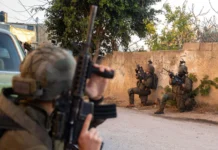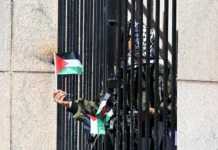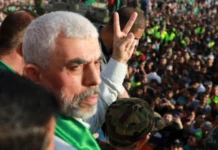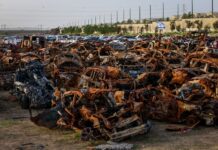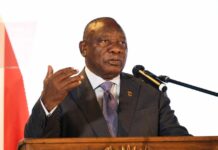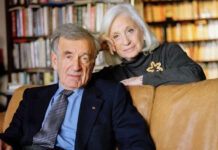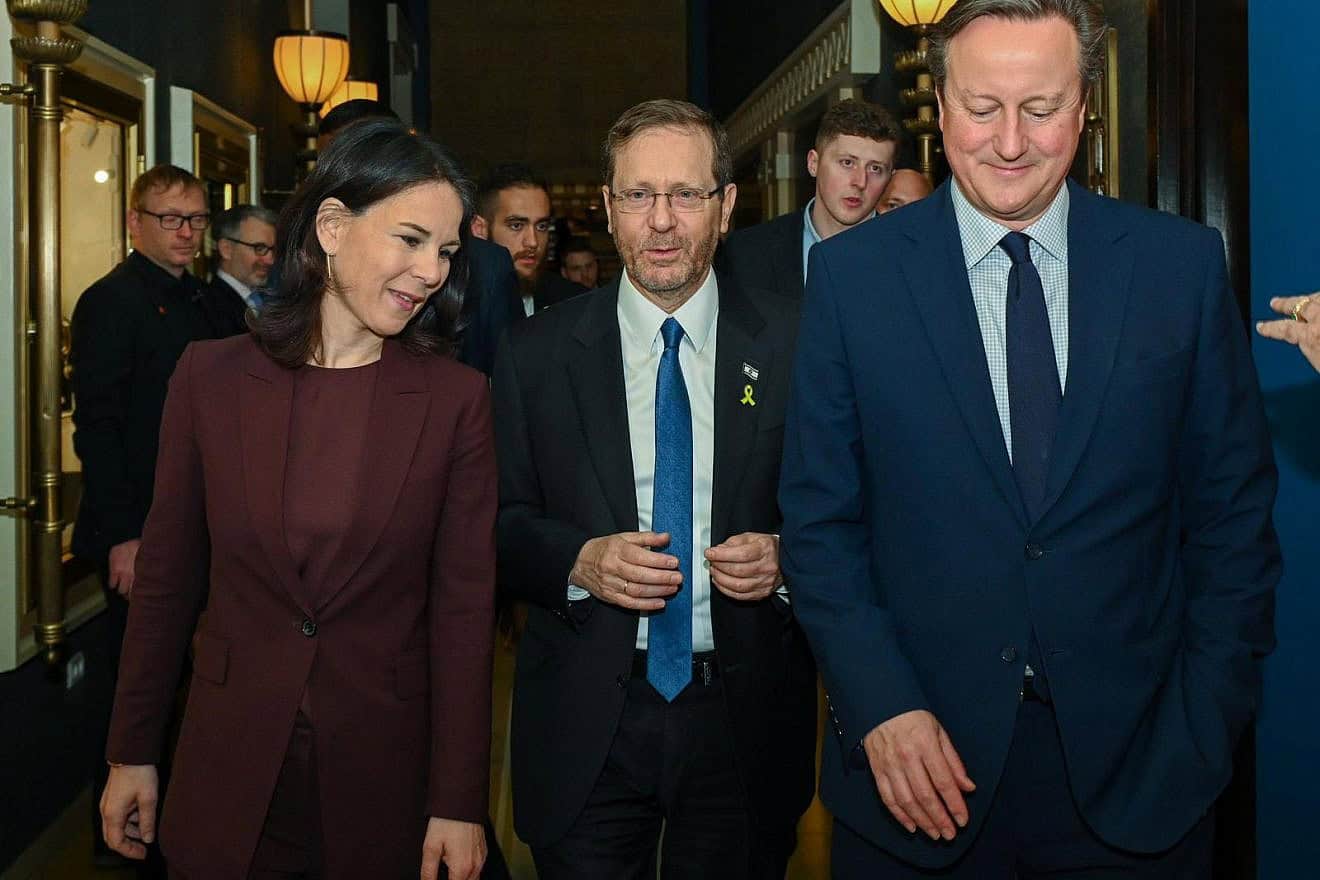Israeli President Isaac Herzog on Wednesday urged the international community to confront Iran, as Jerusalem prepares a response to the Islamic Republic’s massive drone and missile attack over the weekend.
“The whole world must work decisively and defiantly against the threat posed by the Iranian regime, which is seeking to undermine the stability of the entire region,” Herzog said after meeting the foreign ministers of Britain and Germany in Jerusalem.
Herzog reiterated the Jewish state’s “unequivocal” commitment to defending its people, including by working for “the immediate return home of all the hostages held in captivity by Hamas in Gaza.”
U.K. Foreign Secretary David Cameron touched down in Tel Aviv on Wednesday morning, amid Western efforts to prevent an Israeli retaliation against Iran.
“It’s clear the Israelis are making a decision to act,” Cameron said in remarks to reporters, adding: “We hope they do so in a way that does as little to escalate this as possible.”
A British official told local media on Tuesday night that London’s top diplomat was expected to sit down with Prime Minister Benjamin Netanyahu and Foreign Minister Israel Katz, and possibly also with minister-without-portfolio and War Cabinet member Benny Gantz.
Though the one-day visit is to focus on the humanitarian situation in Gaza, Cameron will also bring up Tehran’s attack and tensions with Iran-backed terror groups in Lebanon.
Overnight Saturday, the Islamic Republic launched more than 300 missiles and UAVs at the Jewish state. The IDF announced that Israel and its allies, including the U.K. Royal Air Force, intercepted 99% of the projectiles; none of the 170 drones sent by Iran entered Israel’s airspace.
Ahead of Cameron’s arrival, Netanyahu on Tuesday spoke by phone with his U.K. counterpart Rishi Sunak for the first time since the attack.
According to Downing Street’s readout, Sunak “stressed that significant escalation was in no one’s interest and would only deepen insecurity in the Middle East. This was a moment for calm heads to prevail.”
Meanwhile, the Israeli Prime Minister’s Office said that Netanyahu had thanked the United Kingdom for its role in averting the multi-pronged attack.
Western governments have called on Israel to refrain from retaliating against Iran, fearing a regional war. The United States has reportedly told Israel that it will not participate in an attack against the Islamic Republic.
Parallel to Cameron’s visit, German Foreign Minister Annalena Baerbock arrived in Tel Aviv on Tuesday for meetings with Netanyahu, Katz and other senior officials.
In the press release, Berlin stressed that talks would “focus in particular on preventing the spiral of violence from escalating unabated.” Baerbock intends to advocate for new E.U. sanctions against Iran.
“Everyone must now act prudently and responsibly,” she said on Wednesday following the meetings.
“A spiraling escalation would serve no one, not Israel’s security, not the many dozens of hostages still in the hands of Hamas, not the suffering population of Gaza, not the many people in Iran who are themselves suffering under the regime, and not the third countries in the region who simply want to live in peace,” she added.
Israel might launch an attack in the coming days, U.S. officials told The Wall Street Journal on Monday. Jerusalem’s War Cabinet reportedly discussed several possible military responses, with each of them designed to inflict pain on the regime while avoiding all-out war.
Israeli Defense Minister Yoav Gallant, a member of the War Cabinet, told his American counterpart on Sunday night that the Jewish state had no choice but to respond to the unprecedented aerial attacks.
The Walla news site, citing a senior American official and a source privy to the conversation, reported that Gallant stressed to U.S. Secretary of Defense Lloyd Austin that Jerusalem could not accept a reality in which ballistic missiles are fired at Israeli territory without repercussions.
A 7-year-old Israeli Bedouin girl wounded in the Iranian assault is still in critical condition after undergoing a series of surgeries, a spokesperson from Soroka Medical Center in Beersheva told JNS on Tuesday.

